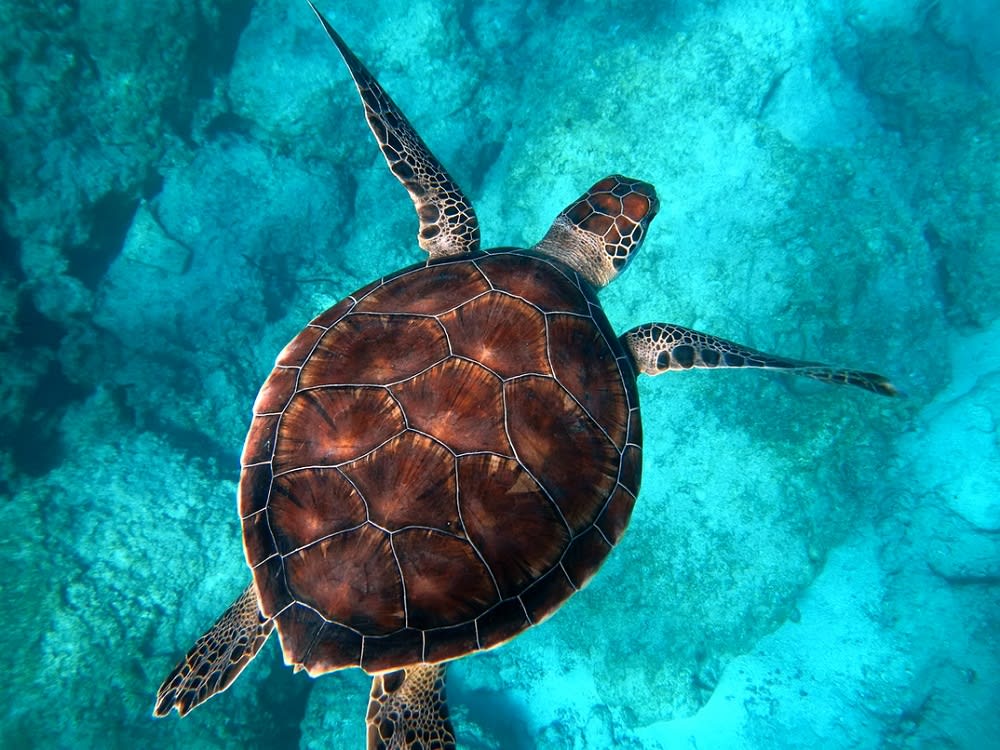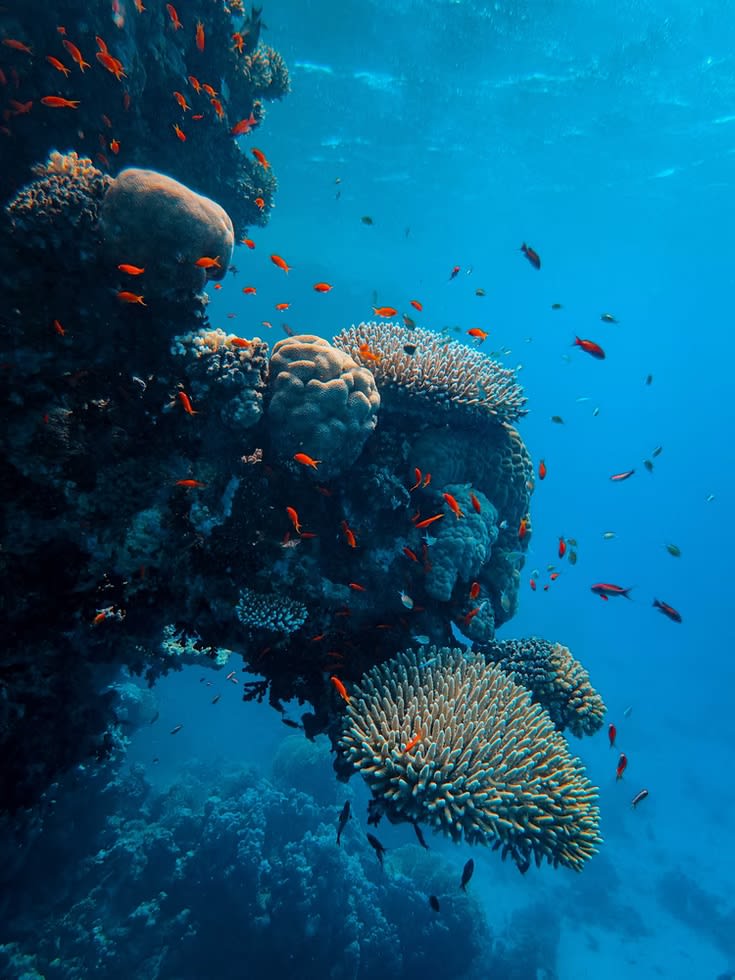Oceans have it all, from microscopic life forms to the largest animals to ever exist on Earth, from the colorless to the glistening, from the ocean floor to the sun-kissed surface dwellers. They are essential to Earth's ecosystem, comprising a majestic range of biodiversity, food, and life. According to the Food and Agriculture Organization of the United Nations (FAO), over 40 percent of the world's population lives within 100 kilometers of the coast. We must manage and protect our oceans to ensure global food security for generations to come. It is never too early or too late to learn about the countless benefits our oceans provide. Without them, life could not exist, so we must grasp what they offer and how we can better protect them.
Oceans Create Oxygen
Phytoplankton are tiny, plant-like marine organisms that grow and get their energy through photosynthesis and are responsible for producing an estimated 80% of the world’s oxygen. Given this fact, climate scientists are intrigued to learn more about phytoplankton because of their role in oxygen production and carbon sequestration. Like land-based flora, they contain chlorophyll that captures sunlight, use photosynthesis to convert it to energy, and produce oxygen as a byproduct.
Oceans Regulate Our Climate
Oceans absorb a quarter of all the carbon dioxide that humans release into the atmosphere, making them a carbon sink. However, oceans' ability to absorb more carbon than it already has is limited. Over 90% of the excess heat trapped in the Earth due to human-caused global warming has been absorbed by the oceans. Not only does water cover over 70% of the planet's surface, but the sea is also the most prominent solar energy collector on Earth. It covers so much surface area that it can absorb large amounts of heat without significantly increasing temperature. The heat eventually re-enters the rest of Earth’s system by melting ice shelves, evaporating water, and directly reheating the atmosphere. The heat tends to be most intense near the equator, with the water closest to the surface warming the most. Without carbon sequestration and ocean currents' heating and cooling effects, world temperatures would be too unstable to support life.
Oceans Affect the Weather
As the oceans are heated by the sun's rays, water from its surface evaporates and condenses to form clouds. These steps in the water cycle create rain and, therefore, our drinking water. The oceans also contribute to winds, thunderstorms, hurricanes, and the production of monsoon rains that millions of South Asian citizens rely on for agriculture and livelihoods.
Oceans Affect Our Health and Well-Being
Water is known to have calming effects and reduce anxiety in people. Being near blue spaces is thought to have positive effects on our physical and mental health. Unfortunately for us and the ocean, experts estimate that 4.8-12.7 million tons of waste enter the ocean each year. Plastic and rubbish make their way into the water by debris falling off ships, trash blowing into the ocean from landfills, garbage swept into the sea via rivers, and people discarding their trash on the beach.
Plastics are especially problematic, forming massive floating patches of debris. The United Nations claims that plastic waste in the ocean causes the death of over a million seabirds yearly. Plastic debris is also responsible for the deaths of over 100,000 marine mammals annually. Our responsibility as intelligent and cognitive beings is to protect our oceans from further destruction for the health of the ocean, its creatures, and living beings as a whole.
Oceans Provide Vital Renewable Energy
As technology evolves daily, humans are developing devices to harness nature's wonders for energy. Wave energy converters, tidal energy converters, and ocean thermal energy converters are currently in development. These technologies can be costly and more research is needed to understand their potential effects on marine life. Ocean energy derived from the ocean’s waves, tides, and currents could provide the equivalent of over half of the electricity that the US generated in 2019. The US government and industry stakeholders predict that ocean energy will be utilized to provide power for the energy and water needs of the island and coastal communities and offshore activities. Wave and tidal energy converters are in the early stages of commercialization, but these technologies present some potentially significant changes in how we utilize our planet’s largest natural resource.
Oceans are an Essential Food Source
Fish are eaten by billions of people around the world daily. In addition to the typically eaten fish, crustacea, and other edible marine life, algae and sea plants are commonly used in cooking. The FAO lists sodium, calcium, magnesium, and iodine as some of the important nutrients in seaweed. In addition to seaweed being filled with minerals and various fish providing crucial omega-3 fatty acids, the oceans could be a pertinent element of a more sustainable approach to feeding Earth’s growing human population.
Ocean Biodiversity is Extraordinary
Oceans are much more than an important food source. They host 80% of the planet's biodiversity. While there are estimations on the number of species in the sea, no one knows for sure what that number is. According to the US National Library of Medicine’s National Institutes of Health, 91% of species in the ocean still await description. Considering that oceans cover approximately 70% of the earth’s surface and are up to 11,000 meters deep, the number of yet-to-be-discovered creatures within its mysterious waters could easily run into the millions.
One fascinating example of how mysterious oceans can be is the coelacanth. Found in fossils and believed to be extinct, the last living coelacanth was found off the coast of South Africa in 1938. The way their fins move resembles how many four-legged creatures walk, begging further research to explore invaluable insight into how marine animals adapted to life on land.
Oceans Create Millions of Jobs
The Organisation for Economic Cooperation and Development (OECD), estimated that ocean-based industries will employ over 40 million people worldwide by 2030. The biggest share of those jobs will likely be in the fisheries sector and tourism. The economic health and growth of maritime industries are heavily reliant on the overall health of the oceans. The ocean economy is particularly important in developing countries where three billion people rely on the ocean for their livelihoods.
Challenges like pollution, climate change, and lack of awareness of sustainable ocean stewardship techniques continue to jeopardize our marine resources. From absorbing carbon to providing food and jobs, oceans are a lifeline for billions of people.
To perpetuate human survival and the well-being of countless other creatures, we must clean up and maintain our oceans. Every individual can make a difference, and we must take action. Here are just a few efforts that you can tackle:
- Conserve by campaigning to prevent the pollution of a local coastal environment, or reduce the use of plastics to ensure less of it ends up in our oceans.
- Protect a species or ecosystem by campaigning to have it protected by your local government or international policies.
- Restore by partaking in beach clean-ups and getting others involved.
If you are passionate about protecting our oceans and have always dreamed of living by the sea, contact Malibu realtor Sandro Dazzan. One of the nation’s top real estate agents, Sandro Dazzan has closed over $1.5 billion in sales throughout his career. With Sandro’s help, you will be living large in Malibu real estate in no time. Call Sandro today so that you can help secure our ocean’s future tomorrow.


























